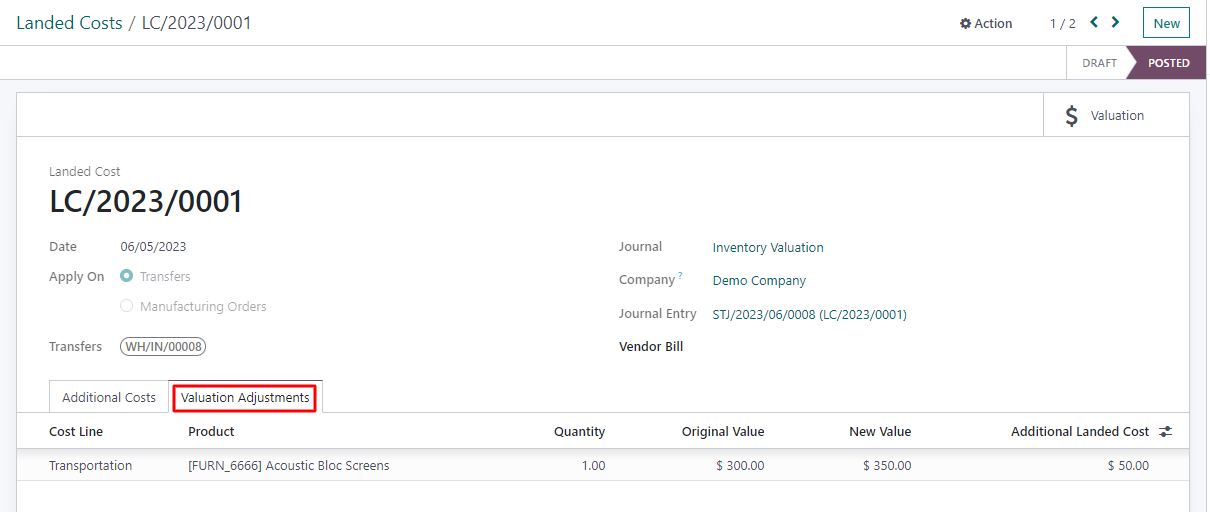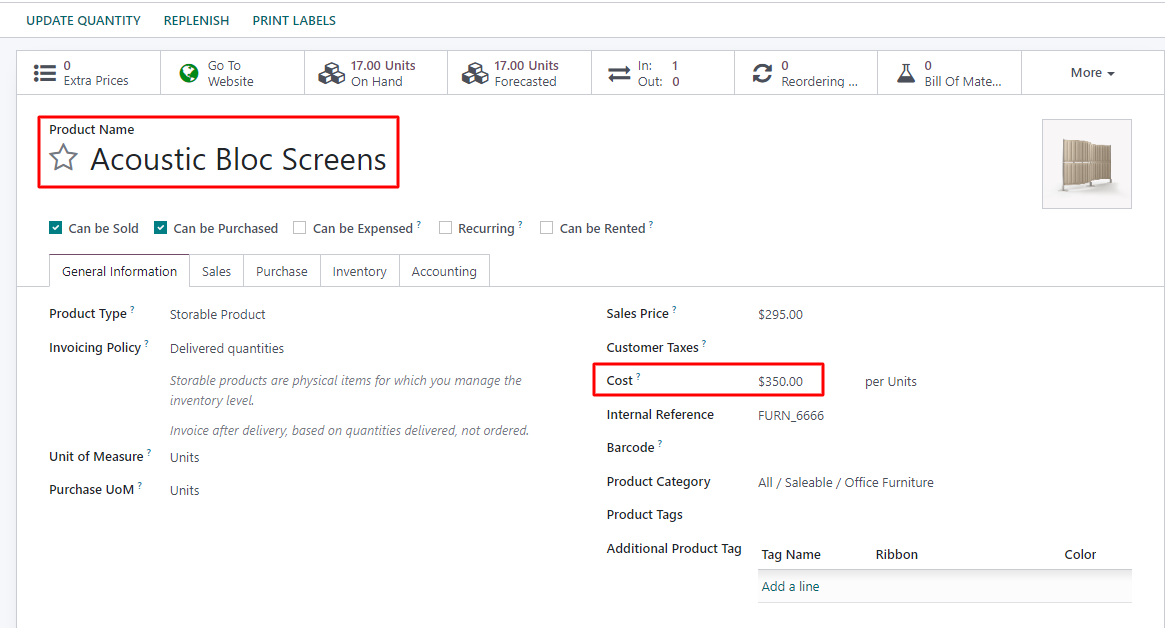What is Landed Cost?
Landed cost refers to the complete price of a
product that a buyer must pay at the time of purchase. It encompasses various
expenses such as transportation, customs duties, handling fees, service
charges, shipments, and more. To determine the selling price of a product,
these additional costs are added to the actual price of the product. The method
of calculating the landed cost may vary across different companies based on
their policies.
Activating Landed Costs in Odoo Inventory
In the Odoo Inventory module, you can calculate
the landed cost and allocate it among each quantity of the product to update
its selling price. To activate the Landed Costs option, go to the Settings
menu as illustrated in the image below.
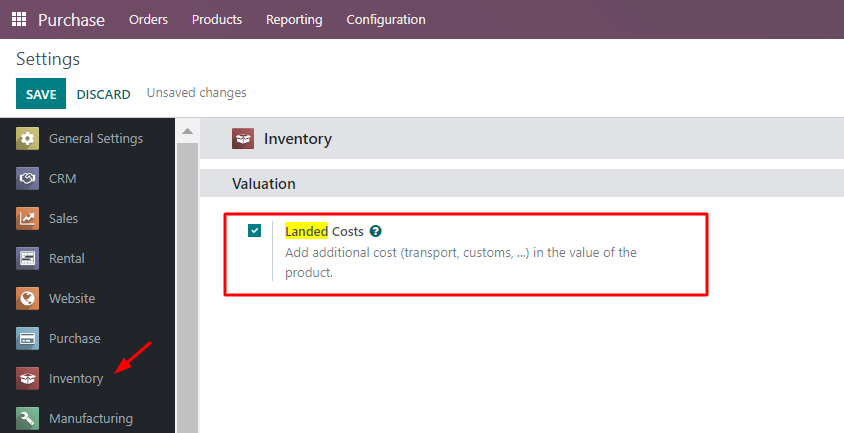
Managing Purchase Orders and Confirming Orders
Enabling this feature allows you to implement
customised landed costs for your products. To comprehend the operations related
to landed cost, start by creating a purchase order for products within the same
category and confirm the order. You can assign landed costs to products whose
costing method is set as AVCO or FIFO. The inventory valuation of such
products should be automated, which is a prerequisite for configuring landed
costs.
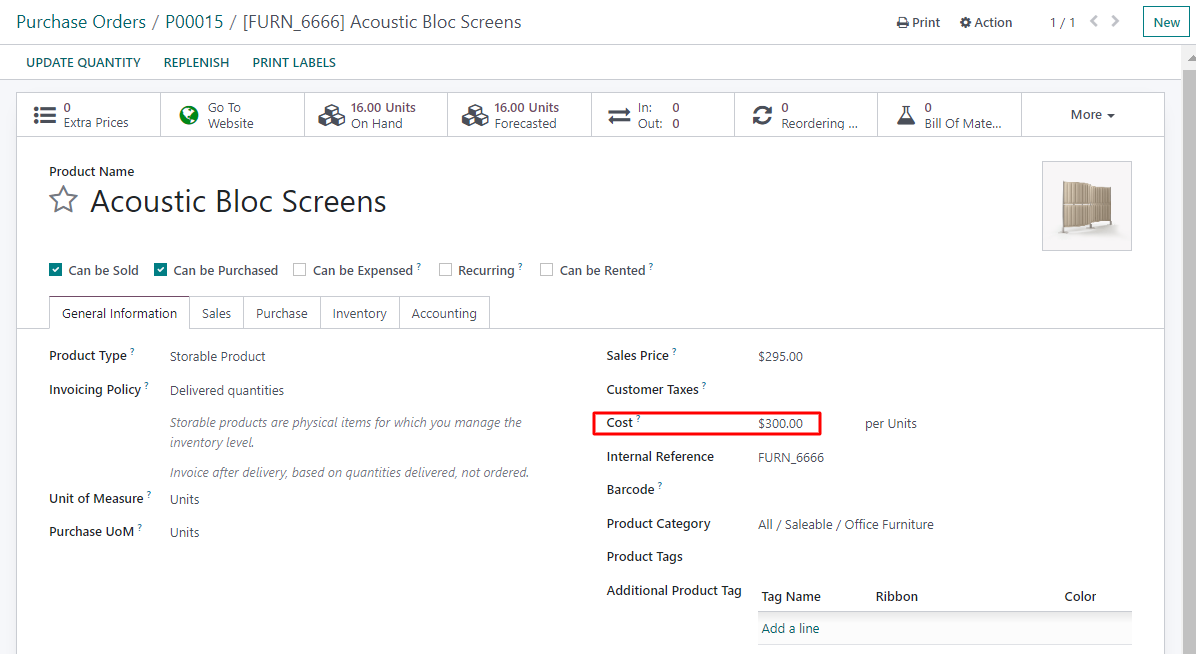
Receiving and Validating Products
Now, create a purchase order; the unit prices of
the purchased products can be observed under the Products line. Clicking on the
Confirm Order button will finalise your purchase. Subsequently, you can receive
the products in your inventory by clicking on the Receive Products
button.
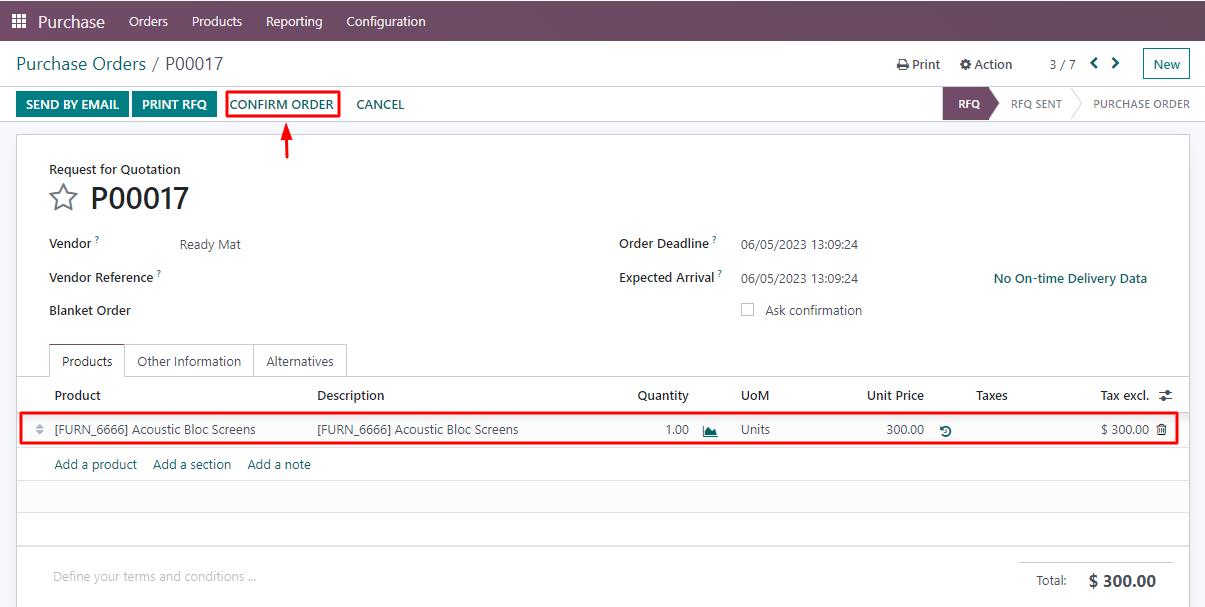
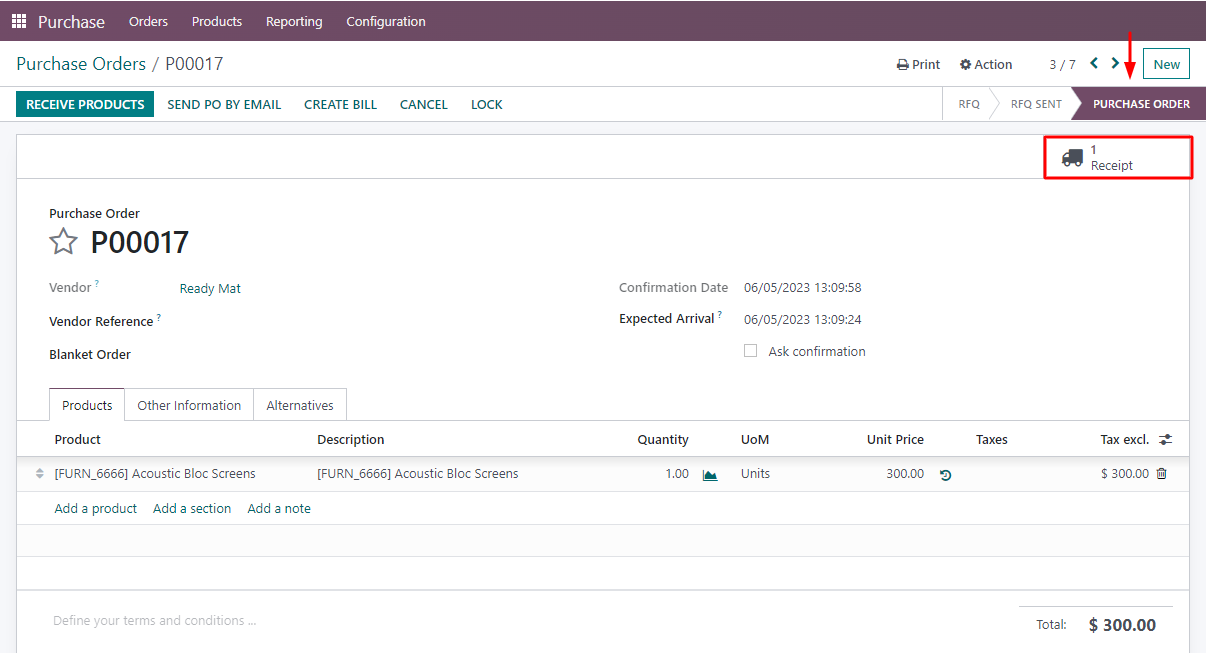
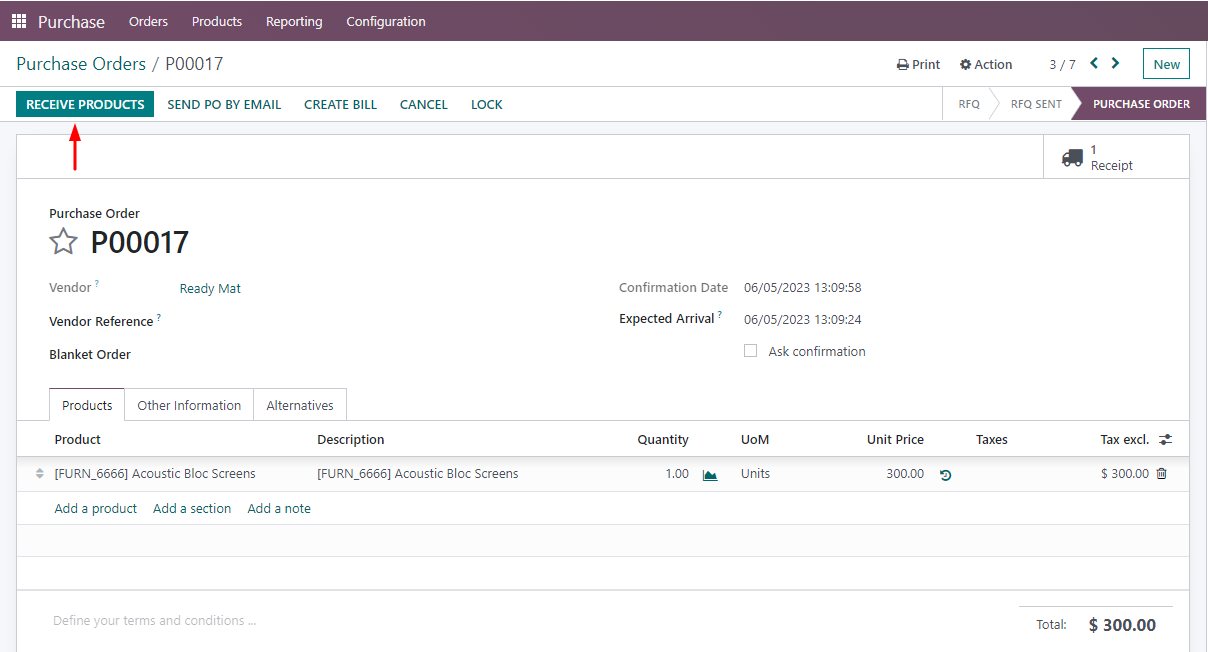
Validate the transfer of the products by
clicking the Validate button. This action will stock the purchased
products in the designated location mentioned in the receipt. You have the
option to add landed costs to these products when selling them.
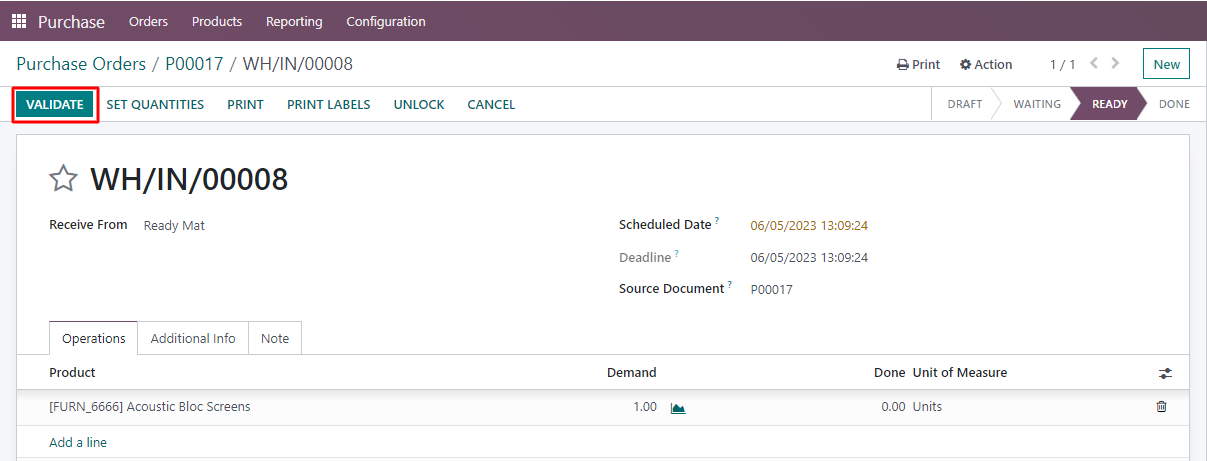
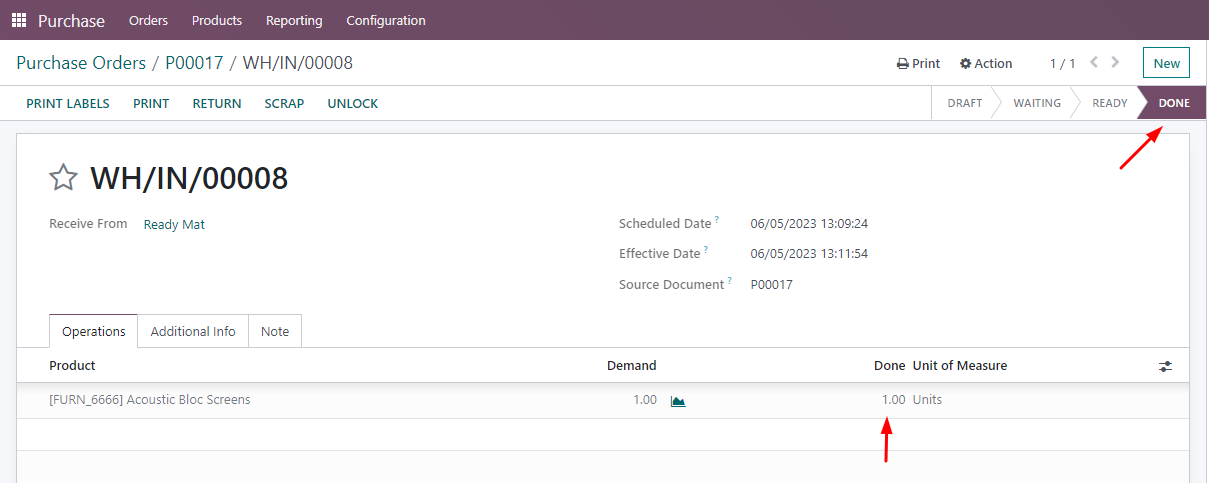
Let's imagine that you incurred some expenses
during the transfer of these products to the destination location. You can add
these additional charges to the products as part of the landed cost. With the
help of the landed cost feature in Odoo Inventory, you can create additional
charges for the products. To do this, navigate to the Operations menu of the
Inventory module. You will find the Landed Costs platform there, as
depicted in the image below.
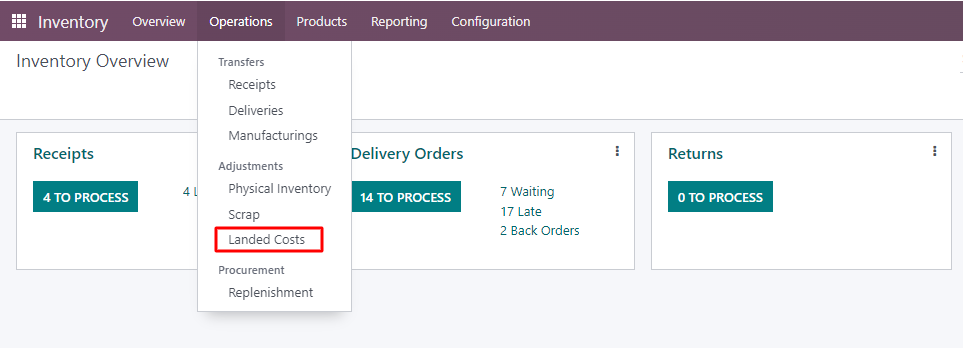
By using the Create button, you can
generate a new landed cost.

In the respective field, you will find the Date
of creation. In the Apply On field, select Transfers since we
want to add landed costs for transfers. Specify the ID of the receipt created
earlier in the Transfers field. The Journal, Company, and Vendor Bill of the
products can be specified in their respective fields.
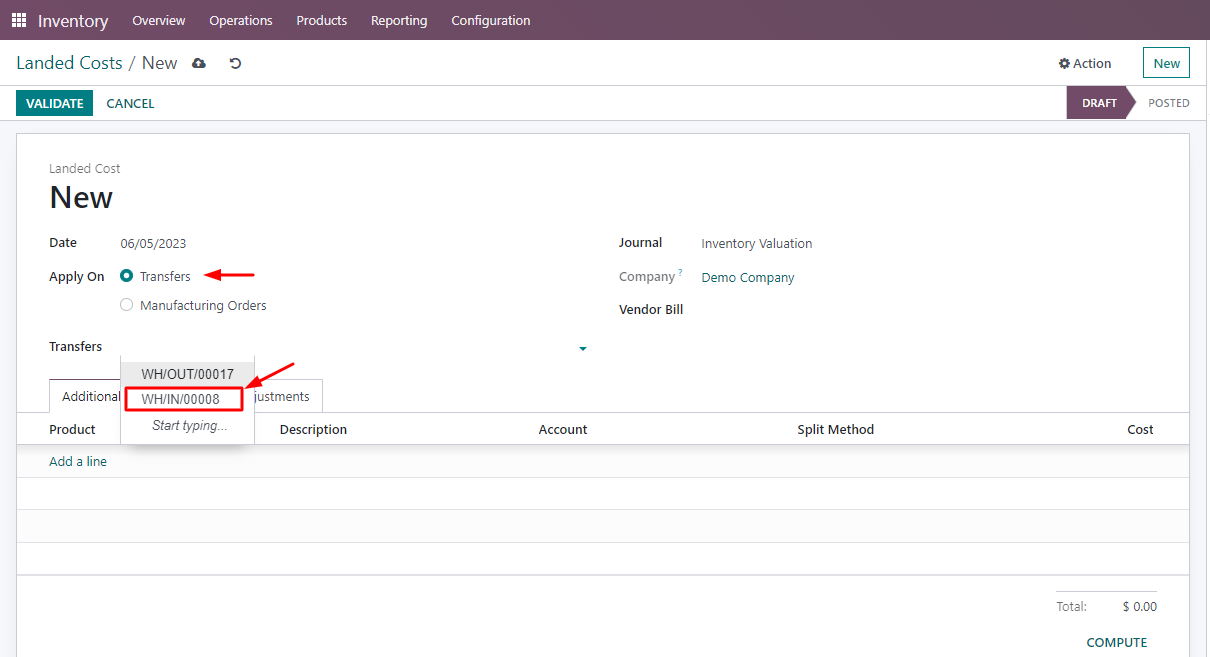
Note: Here, we mentioned Transportation as an additional cost. While configuring Transportation as the additional cost, don’t forget to save it as a service product, as shown in the image below.
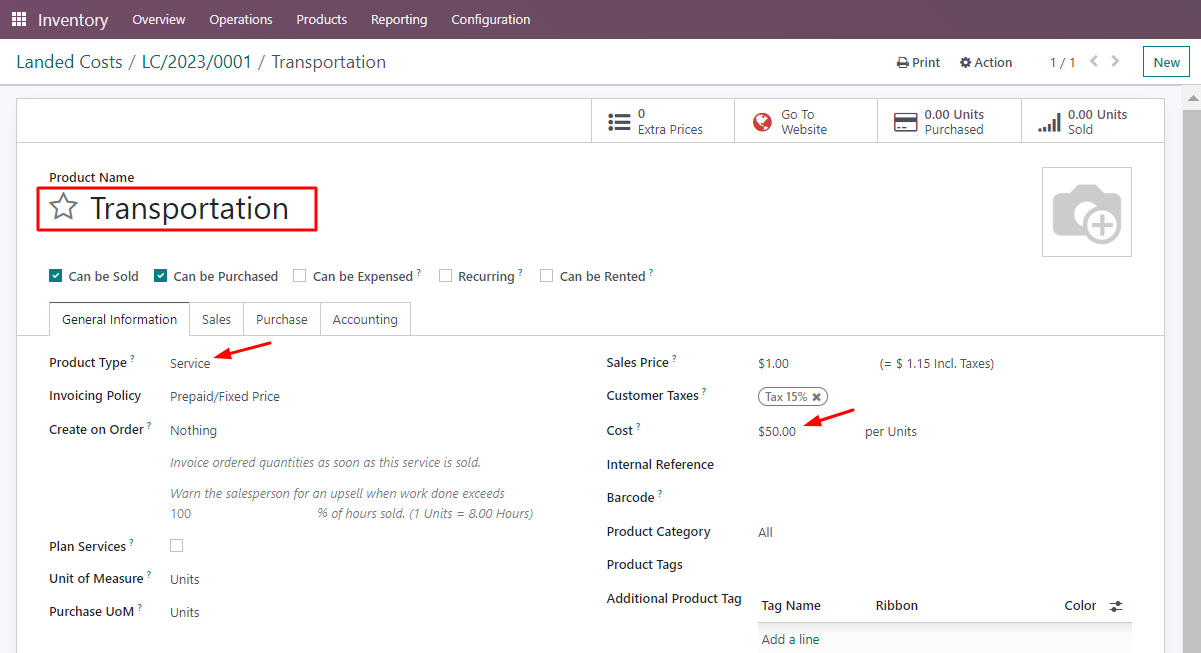
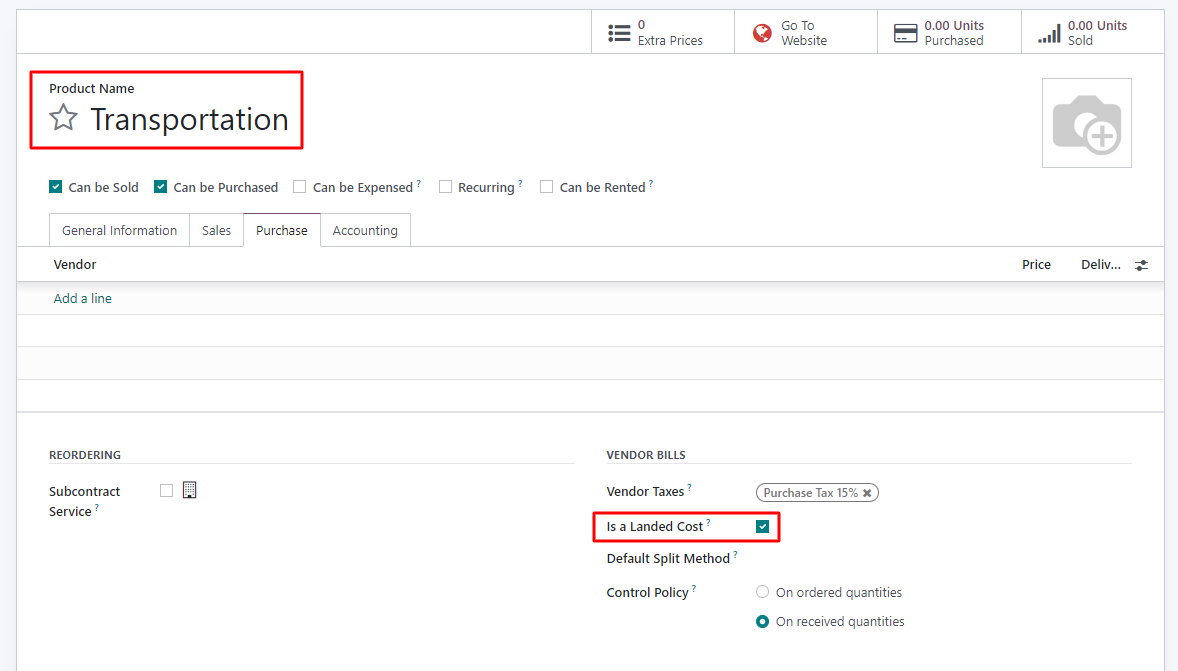
Mentioning Additional Costs and Split Method
Under the Additional Costs tab, you can mention the additional costs by clicking the Add a Line button. For instance, you can specify Transportation as an additional cost.
After mentioning the Product, Description, and Account details, you can select the appropriate Split Method. The Split Method determines how the landed cost will be allocated among the products mentioned in the transfer receipt. It can be set as Equal, By Quantity, By Current Cost, By Weight, or By Volume, depending on your company's policy.
In this case, we will select the split method as Equal. Finally, you can validate the landed cost using the Validate button.
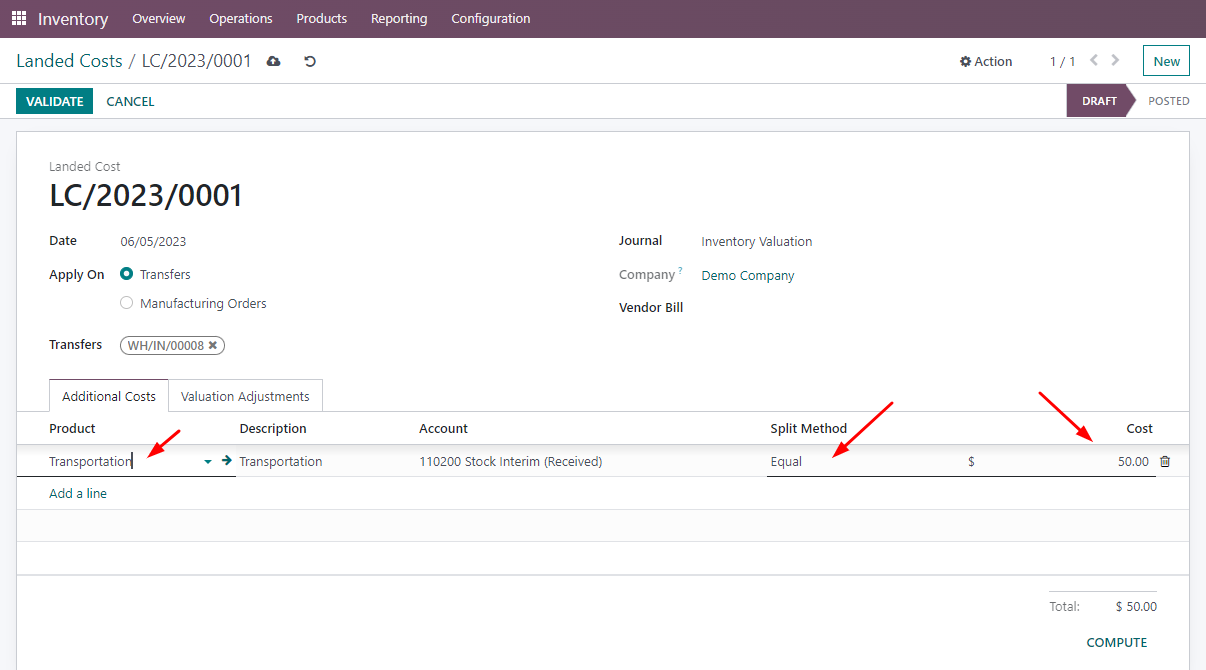
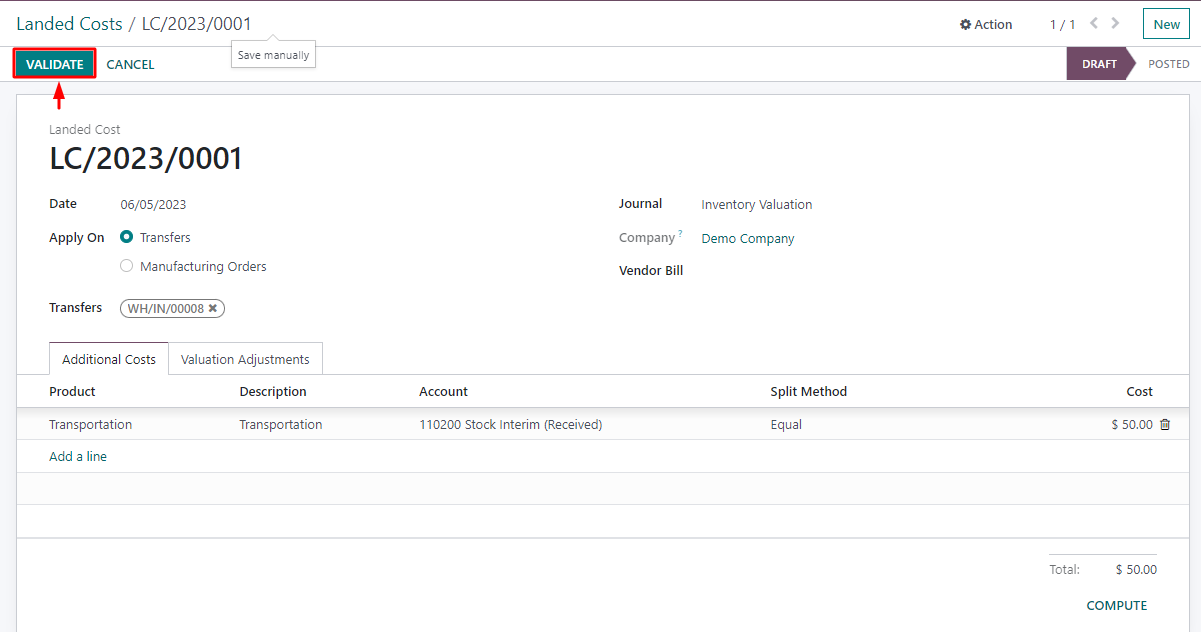
Valuation Adjustments
The smart button labelled ‘Valuation adjustments’ provides details of the landed cost's valuation. As shown in the screenshot below, you can observe that the landed cost is equally distributed among the products included in the specific receipt.
The product template has been revised to include the updated cost of 350, reflecting the additional expenses.
